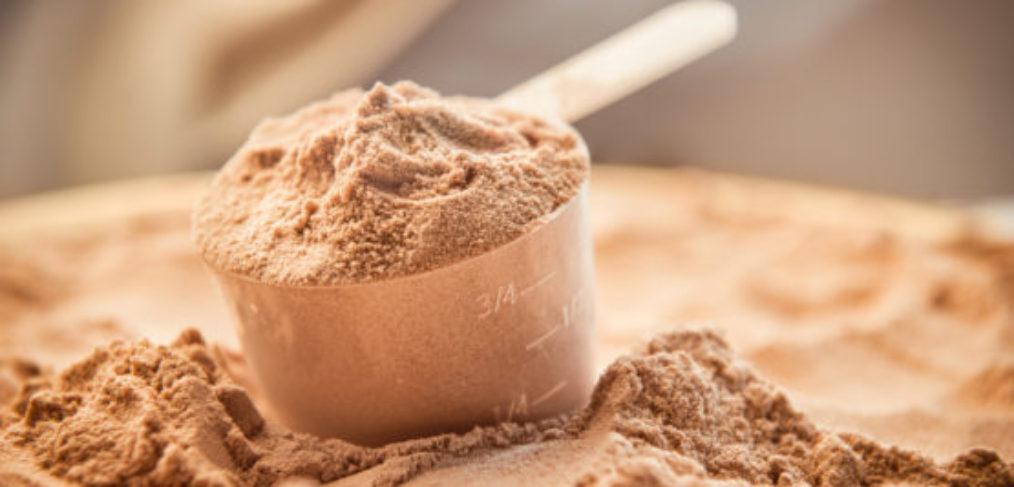Do I Need Powdered Collagen?

With the growing awareness of gut health, gut dysfunction and the gut brain axis, a plethora of products have popped on the market, each claiming to be a panacea of one sort or another.
Some are valid.
Probiotics undoubtedly can play a significant role in healing a leaky gut, as can fermented foods; shifting away from a carb-heavy, standard American diet towards a more authentic manner of eating by incorporating more sustainable animal fats, proteins and an abundance of in season, local vegetables also provides a key component of the foundation of eating one’s way to optimal health.
So where do all the new products we’re now seeing on the shelves of even the most mom and pop health food stored fit in, if at all?
And how can we tell if we need these powders, pills and potions?
Let’s start with one item in particular, which is near and dear to my heart… err, gut: collagen, as it pertains to gut health.
As someone who suffered from leaky gut for years and was able to heal it through cutting out inflammatory foods and opting for a nutrient dense, Paleo approach to eating, my interest is piqued any time I learn of any new product, supplement or even recommendation meant to help correct this often grossly overlooked health concern.
Collagen in powdered form is not just available in stores, it’s everywhere.
Gone are the days when no one knew what fat coffee was or when it was challenging to try to explain to people that eating a real Paleo diet did not, actually, involve eating dinosaur meat.
But with the awareness of incorporating authentic, whole foods (such as fresh local veggies, mindfully sourced proteins and a variety of natural fats) as part of the protocol in addressing gut health, comes the opportunity in the market for supplements to be used in place of the real deal.
Not just in place of, incidentally, but sometimes even in addition to.
This was brought to my attention just the other day when a client mentioned he’d been enjoying his grass-fed beef bone broth as part of his new eating protocol… and that he’d been mixing in the powdered collagen powder he’d purchased at the heath food store.
Is this necessary or supplement overkill?
Let’s review.
One of the main reasons to drink bone broth as part of one’s regime to address leaky gut and inflammation is that bone broth is rich in minerals that support the immune system and contains healing compounds like collagen, glutamine, glycine and proline. The collagen in bone broth heals your gut lining and reduces intestinal inflammation (1).
Collagen is the most important structural protein in the body; in peptide form (also called hydrolyzed collagen), it’s the most bioavailable and most easily digested.
Gelatin, collagen that has gone through partial hydrolysis, making it into a gel, is beneficial for restoring strength of the gut lining and fighting food sensitivities, helping with the growth of probiotics in the gut, and supporting healthy inflammation levels in the digestive tract (2).
To understand the difference between collagen versus collage peptides, remember that collagen peptides and gelatin are made by breaking down full length collagen molecules.
Because collagen peptides are more easily absorbed into the bloodstream than gelatin, eating real food sources which are rich in these compounds as well as those which boost peptide absorption will maximize your body’s ability to reap all the benefits.
Foods high in vitamin C, such as citrus, red peppers, strawberries, guava and kale as well as foods high in sulfur, such as broccoli, cauliflower, arugula and garlic aid in the development of collagen (3).
In general, eating lots of veggies and a variety of fruits will enhance collagen production.
No surprises there!
Cutting sugar is also helpful as sugar destroys collagen and elastin.
Most importantly, remember that incorporating your daily bone broth is only part of the story; clearing out your diet from inflammatory bad-guys in addition to the obvious white sugar creeps and boosting your intake of local, in season leafy greens, good fats and properly sourced proteins completes the foundation of your gut-healing path to creating health.
Choosing to add supplements or not is best done with the right about of information, properly sourced specific to your own needs by acquiring data from testing provided by your naturopath or functional medicine doctor.
Granted, there are great options on the market now for powdered collagen and even powdered bone broth, which make for good choices when getting the freshly prepared golden elixir might not be an option, but whole food is always superior to powdered.
While there are some fantastic options over the counter and on the shelves these days, it makes no sense spending extra cash and potentially harming your body’s natural balance if you don’t need supplements in the first place.
Take the safest route possible: start with your food-first (no risk) approach and see how far you get.
Then as you begin to see improvements, gauge where things may still be falling short and then choose to see a wellness professional who is truly going to look at the whole picture of your health and not just write you a prescription for a digestive medication (or prozac, such as what I experienced at my last appointment with the GI specialist, after being told not to cut out foods with gluten for fear of not being able to get ample fiber).
Remember, food is medicine!
- https://draxe.com/the-healing-power-of-bone-broth-for-digestion-arthritis-and-cellulite/
- https://www.ncbi.nlm.nih.gov/pmc/articles/PMC3358810/
- https://www.huffingtonpost.com/entry/are-collagen-and-bone-broth-the-keys-to-youthful-skin_us_5910a946e4b046ea176aedc3?guccounter=1
- ttps://www.cognitune.com/bone-broth-benefits/





